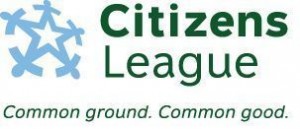From Minnesota to Miami: The History of Florida Charter Schools

Joe Raedle / Getty News Images
Children wait to shake hands with Florida Gov. Rick Scott during his January visit to the Florida International Academy charter school in Opa Locka, Florida.
Charter schools are an idea dreamed up by an obscure education professor in the 1970s which have grown into a primary alternative to traditional public schools.
One in 17 Florida students attended a charter school last year, a number that has increased almost six-fold in a decade.
But where did charter schools come from? Like Dunkin’ Donuts and Post-it Notes, charter schools were imported from Massachusetts and Minnesota.
University of Massachusetts-Amherst professor Ray Budde first coined the term charter school in a 1974 research paper based on his experience as a teacher and college professor, according to Ted Kolderie, a Minnesota charter school advocate who corresponded with Budde. That paper became the basis for the 1988 book “Education by Charter: Restructuring School Districts,” according to Budde’s New York Times obituary.
Budde’s original concept was for school districts to charter teachers, who would then have the flexibility to create innovative ways to teach students. The idea intrigued American Federation of Teachers president Albert Shanker, who brought widespread attention to the idea in a 1988 speech at the National Press Club.
The decade was a busy time for education policy, with others pushing to grant parents vouchers in order to pay for private school tuition.
Michele Gill, an education professor at the University of Central Florida who also helped found Sanford’s Galileo School for Gifted Learning this year, said charter schools have become the most politically acceptable school choice option. Charter schools do not provoke the opposition of vouchers, Gill said.
Charter school advocates also note that local school boards must grant initial approval for charters and should provide oversight to make sure public funds are not misspent.
(Florida approved a voucher law, but the state Supreme Court ruled the private school voucher program unconstitutional in 2006.)
“Charter schools were the way that was kind of a compromise way,” Gill said. “So you don’t have the voucher idea where you take kids out of public schools.”

Citizens League
The Citizens League and its researchers were crucial to getting a Minnesota charter school law approved in 1991.
The Citizens League, a Minnesota research group that included Kolderie, latched onto charters in 1988 and pushed Gov. Rudy Perpich to support the idea. The Citizens League favored a model where schools were approved by the state or a university as well as a local school board and could be set up outside of existing schools.
In 1991, Minnesota became the first state in the nation to approve chartering schools. From there the concept spreads to New Jersey, North Carolina, Michigan and other states.
Florida approved its first charter school law in 1996, and that year Liberty City Charter School in Miami became the state’s first charter.
Since then the number of Florida charter schools has grown to more than 500 with 154,000 students enrolled during the 2010-2011 school year. Private schools remain the largest alternative to district schools in Florida, enrolling 305,825 students — about 10 percent of all K-12 students — last year.
“The demand and the need and the creation of charter schools, it just boomed,” said Vickie Marble, principal of principal at The Student Leadership Academy in Sarasota and a board member of the Florida Consortium of Public Charter Schools. “It started as a movement and now it’s an industry.
All but eleven states have approved charter schools, according to the Center for Education Reform. States continue to work on improving charter school laws.
Last year Florida approved laws setting standards for “high-performing” charter schools and making it easier for good charter schools to expand. Gov. Rick Scott is considering supporting a bill that would allow a majority of parents to vote to convert their district school to a charter school, according to the Miami Herald.
This post is part of a StateImpact Florida series examining charter schools. To read other charter school stories click here.
[spreadsheet key=”0Av06TaO9jXYrdGdObWlEdzNIdXVSS05NeFBmTzN4YlE” source=”Florida Department of Education” sheet=0 filter=0 paginate=0 sortable=0]


